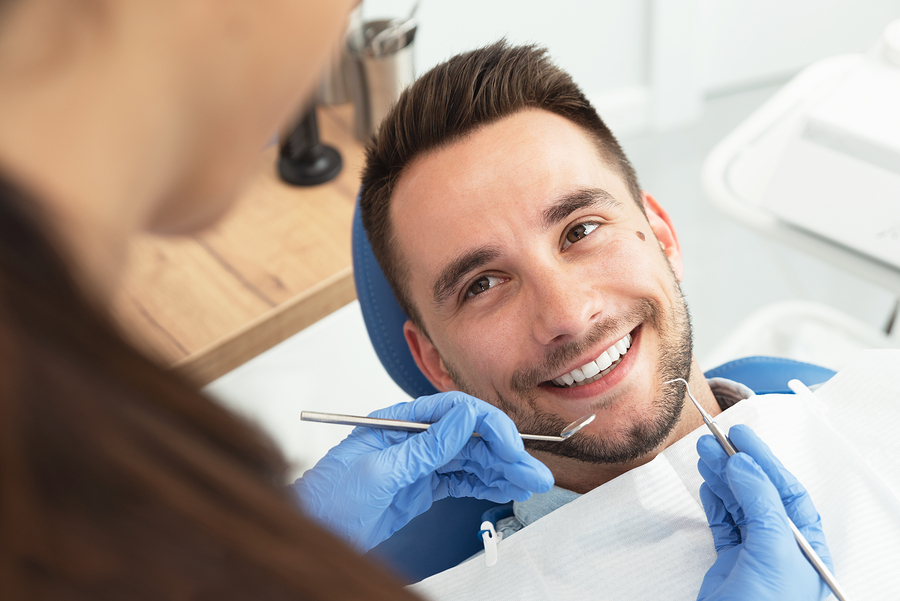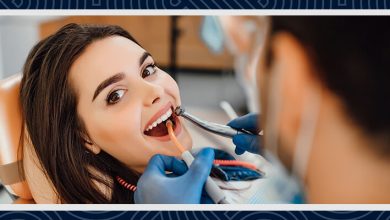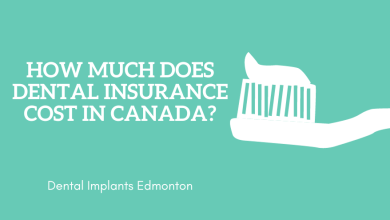How to Care for Dental Crowns? : 7 Essential Tips for Long-Lasting Crowns

To care for dental crowns, practice good oral hygiene and avoid hard or sticky foods. Proper care will help maintain the longevity and durability of the crowns.
Taking care of dental crowns involves regular brushing and flossing, visiting the dentist for check-ups, and being mindful of the foods you eat. By following these guidelines, you can ensure that your dental crowns remain in excellent condition for years to come.
So, let’s take a closer look at how to care for dental crowns, and some important tips to keep in mind to maintain their functionality and appearance.
Tip 1: Follow Proper Oral Hygiene Routine
To care for dental crowns, it is important to follow a proper oral hygiene routine. Brushing your teeth twice a day with a soft-bristled toothbrush and fluoride toothpaste helps to maintain oral health. Using dental floss or interdental brushes to clean between your teeth and around the crown is also crucial. This helps to remove plaque and food particles that can accumulate in these areas. Additionally, rinsing your mouth with an antiseptic mouthwash can help reduce bacteria and minimize the risk of infection. Remember to take extra care when cleaning around the crown to ensure it remains clean and free from bacteria. Overall, maintaining good oral hygiene habits and being attentive to the specific care needs of dental crowns can help prolong their lifespan.
Tip 2: Avoid Certain Foods And Habits
When caring for dental crowns, it is important to avoid certain foods and habits that can cause damage or dislodge the crown. Steer clear of hard and sticky foods that can put excessive pressure on the crown and potentially cause it to crack or come loose. It is also advised to avoid biting or chewing on hard objects such as ice, pencils, and fingernails, as this can have a similar effect on the crown.
In addition to avoiding certain foods, it is also recommended to quit smoking if you have dental crowns. Smoking can lead to discoloration of the crown, affecting its appearance. Moreover, smoking is known to contribute to gum disease, which can have negative effects on the longevity of the crown.
By following these guidelines and being mindful of your eating habits and potentially harmful habits, you can help ensure the long-lasting durability and aesthetic appeal of your dental crowns.
Tip 3: Schedule Regular Dental Check-ups
Visit your dentist every six months for professional cleanings and check-ups. Let your dentist inspect the crown for any signs of damage or underlying issues. Discuss any concerns or discomfort you may experience with your dentist.
Tip 4: Use A Mouthguard For Physical Activities
Protecting your dental crowns is crucial for maintaining their longevity and functionality. One effective way to safeguard them is by wearing a mouthguard during contact sports or any activities that may pose a risk of oral injury. By using a mouthguard, you can prevent fractures or chips to your dental crowns. These protective devices create a barrier between your teeth and potential impacts, absorbing shock and distributing forces evenly. Remember to choose a mouthguard that offers proper fit and comfort, ensuring it stays in place during physical activities. Additionally, regular cleaning and maintenance are necessary to keep your mouthguard hygienic and prolong its lifespan. By following these tips, you can continue to enjoy the benefits of your dental crowns while reducing the risk of damage or unnecessary dental procedures.
Tip 5: Minimize Teeth Grinding
To care for dental crowns, it is important to minimize teeth grinding. Grinding can put excessive pressure on the crown and weaken its structure. If you have a teeth grinding habit, ask your dentist about a customized nightguard. This will act as a protective barrier between your upper and lower teeth, preventing them from coming into contact and reducing the risk of grinding. By using a nightguard, you can help extend the lifespan of your dental crowns and avoid potential damage. Remember to consult with your dentist for a proper assessment of your teeth grinding habit and to get a nightguard that fits correctly. Taking this step can be crucial in maintaining the longevity and effectiveness of your dental crowns.

Credit: www.hovedentalclinic.co.uk
Tip 6: Avoid Using Your Teeth As Tools
When caring for dental crowns, it is important to avoid using your teeth as tools. This means refraining from using your teeth to open packages or bottles. Using your teeth inappropriately can cause the crown to crack or detach. Instead, it is recommended to use proper tools such as scissors or bottle openers to perform these tasks. By avoiding the use of your teeth for activities they are not intended for, you can protect the integrity of your dental crowns and prevent potential damage. Remember to always prioritize the care and well-being of your dental crowns to ensure their longevity and effectiveness.
Tip 7: Address Any Dental Issues Promptly
Addressing any dental issues promptly is crucial for the care of your dental crowns. If you experience pain, sensitivity, or notice any changes in your crowns, it is important to contact your dentist immediately. Early intervention can prevent further damage and enhance the lifespan of your crowns. Your dentist will be able to assess the issue and provide the necessary treatment or adjustments to ensure the continued health and function of your dental crowns. By seeking prompt dental care, you can avoid potential complications and maintain the integrity of your crowns for a longer period of time.
Frequently Asked Questions On How To Care For Dental Crowns?
How Do You Maintain A Dental Crown?
To maintain a dental crown: 1. Practice good oral hygiene by brushing and flossing regularly. 2. Avoid chewing hard food or ice to prevent crown damage. 3. Visit your dentist for regular check-ups and cleanings to ensure the crown’s condition.
4. Be cautious when using teeth for activities like opening packages. 5. In case of any issues, contact your dentist promptly for evaluation and treatment.
How Do You Keep Crowns Healthy?
To keep crowns healthy, follow these guidelines: 1. Brush and floss regularly to prevent plaque buildup. 2. Avoid biting or chewing hard objects to prevent crown damage. 3. Visit your dentist for regular check-ups and cleanings. 4. Avoid habits like grinding or clenching your teeth.
5. Report any discomfort or issues with your crown to your dentist promptly.
What Is The Aftercare Of A Crown?
After getting a dental crown, follow these guidelines for proper aftercare: – Practice good oral hygiene by brushing and flossing regularly. – Avoid chewing hard or sticky foods that may dislodge or damage the crown. – Visit your dentist for regular check-ups and cleanings.
– Notify your dentist if you experience any discomfort or notice any changes in the crown. – Follow any specific instructions given by your dentist for care and maintenance.
Do Crowned Teeth Need To Be Cleaned?
Crowned teeth should be cleaned regularly to maintain oral hygiene. Regular cleaning helps prevent plaque buildup and keeps the crown in good condition.
Conclusion
Proper care for dental crowns is key to ensuring their longevity and maintaining a healthy smile. By following these essential tips, such as regular brushing with a soft-bristle toothbrush and avoiding hard foods, you can extend the lifespan of your crowns.
Additionally, scheduling regular check-ups with your dentist allows for early detection and prompt treatment of any potential issues. Remember, by taking care of your dental crowns, you are investing in the long-term health and appearance of your teeth.





